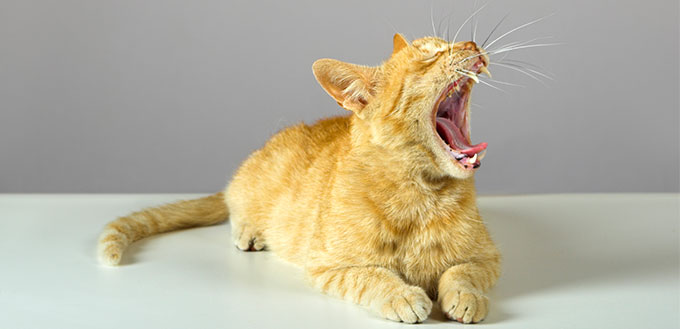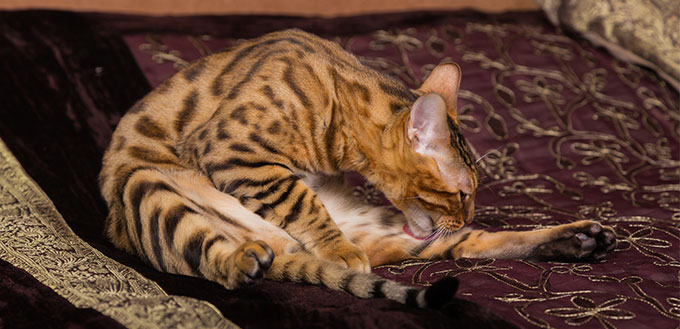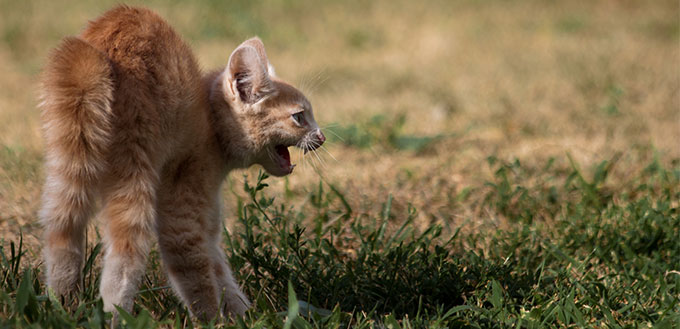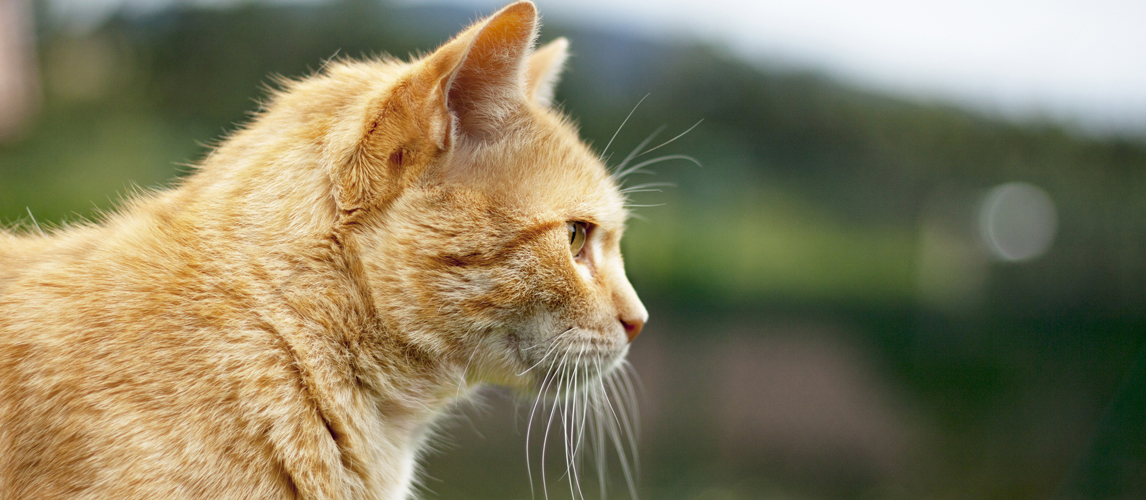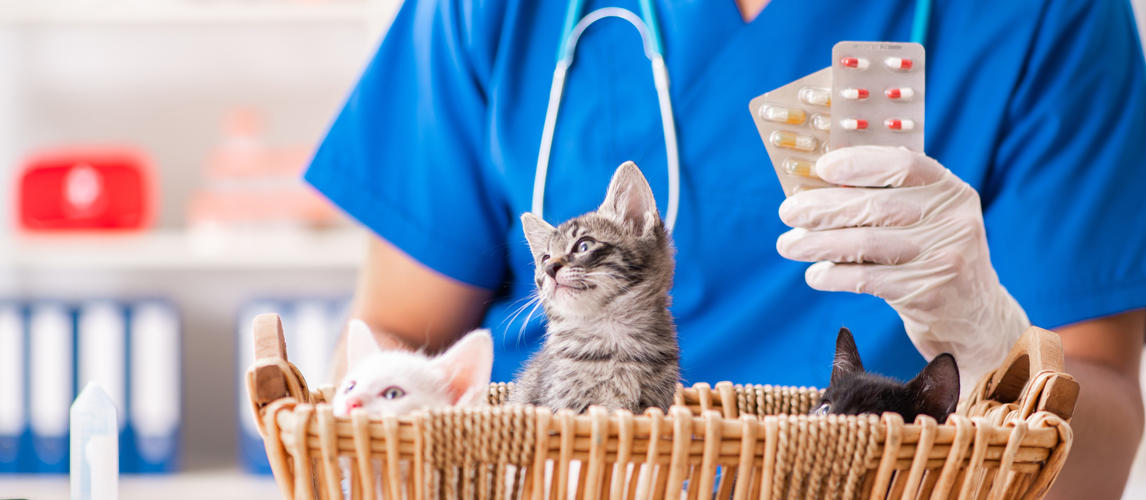Cats are strange. They may be wonderful, intelligent and brilliant companions, but you can’t deny they can also be total oddballs. But, how weird is too weird? Are there any odd behaviors that may indicate something serious? Changes in your cat’s behavior can sometimes be a sign that your cat is ill, but how can you tell? When does something unusual become something serious? As always, we’re here to help you decide, so let’s jump into the top 7 changes in your cat’s behavior that may mean they are ill.
Vomiting
You may think vomiting is one of the more obvious sick cat symptoms, but, from hairballs to regurgitating the occasional undigested food, it can be difficult to tell when your cat is genuinely throwing up. This can make some owners think that vomiting is a normal part of cat life, but it isn’t. Vomiting is a very physical and audible experience. Generally, you should look out for strained gagging and neck extending. It is likely to look more unpleasant, and less deliberate or voluntary, than regurgitation. If your cat is vomiting regularly, you should definitely seek medical help.
Staying Clean
Cats are very hygienic creatures, and a healthy cat will often keep themselves clean and beautiful with only a bit of brushing and bathing help from you. You are probably very familiar with your cat’s grooming routine, so if they suddenly stop grooming themselves as thoroughly as they used to, or start to clean more obsessively, you may want to tell a vet ‘my cat is acting differently’ and describe the personality changes in as much detail as you can. After all, there is a wide range of reasons a cat may change their grooming habits, from anxiety to obesity, so you will need to record as much information as you can.
Appetite
Another very common sign that your cat may be ill is if they suddenly become much more, or much less, interested in food. Many owners may only worry if their cat suddenly stops eating, but it is worth checking that they are okay if they start to demand more food as well. It can be a sign of diabetes, hyperthyroidism, and even cancer. Similarly, cats may refuse food if they are anxious or in pain. One skipped meal, or one absolute blow out, is probably not enough to worry, but do contact a professional if your cat’s appetite significantly changes.
Bathroom Habits
Another common behavior issue that has owners asking ‘why is my cat acting weird?’ is related to your cat’s toilet schedule. Litter box training is usually the very first step of training your kitten, so it can be very strange when they suddenly forget how to use it. One little accident may not be the end of the world, but, if it is a consistent issue, look out for further evidence that may help explain it. Does your cat seem distant or anxious about using the litter box? Do they make an attempt, but stop, possibly due to pain? Do they seem confused or lost? Consult with a vet about their behavior as it could be a symptom of a wide variety of mental and physical health concerns.
Drinking More
Cats need plenty of water to stay hydrated, and you should make sure they always have access to fresh water. Sometimes your cat may drink more than usual, particularly if it is a hot day, so remember to adjust the amount of water you are providing to suit the circumstances. However, if there is no obvious reason for your cat to want more water, such as increased exercise, it could be a sign of kidney disease, thyroid issues or diabetes. Look out for other symptoms, such as changes in urination or weight-loss, and then contact your vet.
Related Post: Cat Food for Kidney Disease
Becoming Loud Or Quiet
Another unusual behavioral change in cats can be in their vocalizations. Normal vocalizations vary from breed to breed and from personality to personality, but most cat owners get to know what is normal for their cat pretty quickly. If you have a quiet kitty, it can be very alarming when they suddenly start to call out to you often, and it can be disconcerting when a happily loud feline suddenly withdraws and becomes quiet. Either way, take the time to listen to your cat and find out what is wrong. They may be anxious or in pain, and it is always a good idea to check with a vet if any unexplained behavior persists.
Aggression
Probably one of the most problematic and noticeable weird changes that your cat can experience is aggression. It may be directed at you if they become defensive and sensitive, or it may be directed at your furniture, if they become anxious or scared. A naturally aggressive cat will require behavioral training, but cats that become aggressive may be struggling with a health issue caused by physical pain or emotional turmoil, so consider talking to a vet if you have any concerns.
Normal Behavior Changes
Try not to worry too much about your cat because the truth is that most cat’s change personality over time. It makes sense when you think about it – are you the same person you were 10 years ago? If your cat used to be very energetic as a kitten, but is now a little slower, it is often just the natural aging process as she grows and matures. However, personality changes don’t usually happen overnight. If your cat’s behavior changes very suddenly, it is always worth bringing them to a professional for a check-up.
Remember that it is okay to trust your own instincts. You know your cat best, so if you think ‘my cat is acting weird’ and you just can’t shake off the feeling that it might be something serious, write down the symptoms alongside their recent habits, activities and diet, then get in contact with your vet. The more information you can offer them, the better. Hopefully, you’ll just get the good news that your cat isn’t sick and is just being a cute, little weirdo!
Sources:
- Dr. H. Ellen Whiteley, How to Treat Common Cat Diseases, HowStuffWorks
- Aging Cats: Behavior Changes, Problems, and Treatments, WebMD
- Tammy Hunter, DVM, Recognizing the Signs of Illness in Cats, VCA Hospitals
- Older Cats with Behavior Problems, The ASPCA
Note: The advice provided in this post is intended for informational purposes and does not constitute medical advice regarding pets. For an accurate diagnosis of your pet's condition, please make an appointment with your vet.


